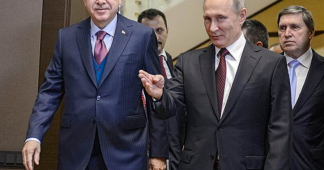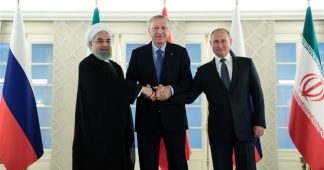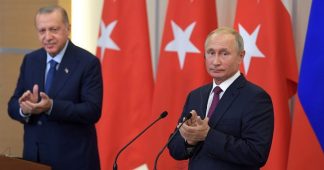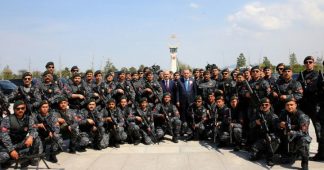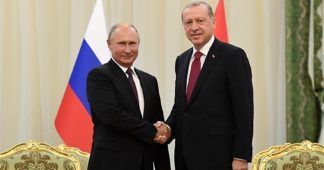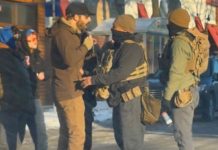By Mehmet Perinçek
02/22/2020
In order to understand the events in Idlib, it will be useful to briefly summarize the process, up until November 15, 2015.
Consensus of the November 15th 2015
On November 15th 2015, Erdogan and Putin held a meeting in Antalya, taking the use of the G-20 summit. The meeting had an important secret agenda.
Even Putin at first, did not know about this agenda. Erdogan has addressed his Russian counterpart as “Volodya” (a sincere informal version of the name Vladimir), and said that the Turkish Army would launch an operation on the Syrian territory. The Russian President has responded to these statements from Erdogan, by saying “we will look the other way”. Moscow had turned a green light, on the Turkey’s operation abroad.
As a matter fact, the Astana process would have begun around that time instead. The two countries had agreed upon intervening in the Kurdish corridor, without the consent of the United States, who wanted to establish such a corridor.
Sabotaged by the jet plane crisis
However, a Russian Su-24 fighter jet was shot down on November 24th 2015, while 10 days has not passed since this agreement was in order. The statements of “we can strike again if necessary”, “I gave the order to shoot down”, “NATO should intervene” have risen from the AKP government. To this, Putin would say, “We were stabbed in the back”, which was understood as an insignificant statement at the time, but what the Russian leader meant when saying these words, was the agreement of the November 15th.
What has happened, that these two countries came to brink of a war, when just nine days ago two leaders have agreed upon the intervention on Syria territory, by the Turkish Army? The consensus, which could change the course of the region, was sabotaged. Moreover the breakdown of the mentioned agreement, Turkey and Russia have become the sides of a very serious geopolitical fraction.
We have explained this many times in our articles. The Turkish-Russian conflicts has always ended up with negative results for the both countries. The winner from these conflicts has always been the West. In fact, the West’s implementations of its plans in the region was always dependent on the provocation of these conflicts.
Davutoglu’s “strategic depth” has prepared the ground for the Kurdish corridor, and then the sabotage of the Gulenist pilots and Ankara’s attitude, deprived of the necessary statesmanship has avenged it. On top of these, Turkey has now lost one its potential allies. The US has left this to Russia to be taken care of. The July 15th plot was initiated right after this operation.
With this, Turkey will be politically isolated; and Russia would fall into Washington’s trap, of the US project to “establish a new government in Turkey”.
The Patriotic Party’s (Vatan Partisi (Turkey)) warns in Moscow, has ended up with positive results. When the plan the US wanted to implement through FETO in Turkey was explained, the Russian view of the issue has changed, and the idea that the re-negotiation could be established with the condition of an apology from Ankara, has come dominant.
Relations have achieved complete recovery, when Ankara kept its promises, even removed Davutoglu from the prime minister’s office, but this time not only Turkey, but the entire region has faced an American coup attempt on the July 15th. Turkish-Russian relations were accelerated as a result of this threat being repelled, the Syrian consensus of November 15th 2015, was revived once more.
